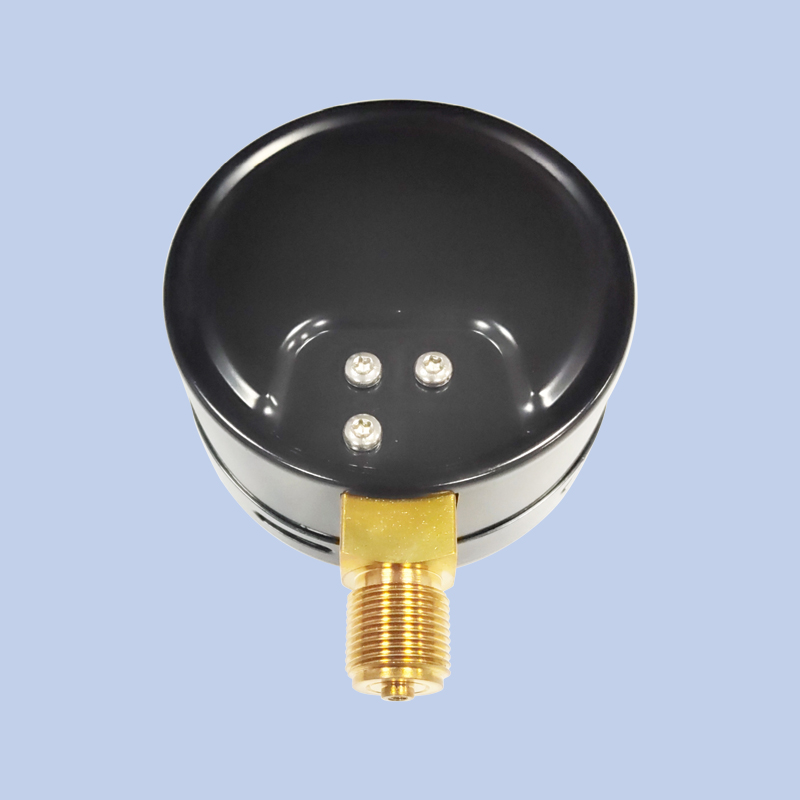
Ago . 13, 2024 12:38 Back to list
Exploring Different Types of Differential Pressure Gauges and Their Applications in Various Industries
Differential Pressure Gauge Types Understanding the Essentials
Differential pressure gauges are critical instruments used in various industrial applications to measure the difference in pressure between two points within a system. These devices play a vital role in ensuring the efficiency, safety, and reliability of processes across a wide range of sectors, including oil and gas, pharmaceuticals, chemical manufacturing, and water treatment.
What is a Differential Pressure Gauge?
A differential pressure gauge is specifically designed to measure the pressure difference between two sources. This can involve measuring the pressure drop across filters, pumps, or other process equipment. The readings obtained from these gauges are essential for monitoring system performance, optimizing flow, and preventing equipment failure.
Differential pressure is represented in units such as pascals (Pa), pounds per square inch (psi), or millibars (mbar), depending on the specific application and industry standards
. A typical gauge consists of a sensing element that converts the pressure difference into a readable format and a display mechanism, which can be analog or digital.Types of Differential Pressure Gauges
Various types of differential pressure gauges are available, each suitable for specific applications and operating conditions.
1. Bourdon Tube Differential Pressure Gauges These are among the most common types of differential pressure gauges. They utilize a curved tube which straightens when pressure is applied. The movement of the tube is mechanically linked to a pointer that indicates the pressure difference on the dial. Bourdon tube gauges are robust and reliable, making them ideal for general-purpose applications in various industries.
differential pressure gauge type

2. Diaphragm Differential Pressure Gauges These gauges utilize a flexible diaphragm that moves in response to pressure changes. The movement is translated into a pressure reading, usually through a mechanical link to a pointer. Diaphragm gauges are particularly suitable for applications involving corrosive or viscous fluids since they can accommodate a wide range of media without damage.
3. Capacitive Differential Pressure Sensors This type of gauge measures pressure differences by determining the change in capacitance between two conductive plates separated by a dielectric medium that experiences displacement due to pressure. Capacitive sensors are known for their high accuracy and are commonly used in applications that require precise measurements, such as in clean rooms and medical devices.
4. Electronic Differential Pressure Gauges With advancements in technology, electronic gauges have gained popularity. These devices leverage piezoelectric sensors or strain gauges to provide an electronic signal that corresponds to the differential pressure. Electronic gauges often come with digital displays and can offer features such as data logging, remote monitoring, and alarming functions to alert operators of any significant pressure changes.
Applications of Differential Pressure Gauges
Differential pressure gauges are utilized in various applications, including
- Filtration Systems Monitoring the pressure drop across filters helps determine when they need cleaning or replacement, promoting maintenance and optimizing system performance. - HVAC Systems Differential pressure measurement aids in the control of airflow and balance within heating, ventilation, and air conditioning systems, ensuring comfort and efficiency. - Process Control In chemical manufacturing, maintaining the right pressure balance between different stages of processing is crucial for safety and productivity, making these gauges invaluable.
Conclusion
In conclusion, differential pressure gauges are essential tools that provide critical insights into a system's operational status across multiple industries. Understanding the different types of gauges available and their specific applications can help operators select the right instrument, leading to enhanced efficiency, safety, and reliability in their processes. As technology advances, the capabilities of these gauges continue to expand, offering even greater precision and functionality for industrial applications.
-
High-Precision 5 Valve Manifold Differential Pressure Gauge Suppliers
NewsApr.29,2025
-
High-Precision Diaphragm Vacuum Pressure Gauges Manufacturers & Quotes
NewsApr.29,2025
-
Omega Differential Pressure Gauges High Accuracy & Durability
NewsApr.28,2025
-
Low Pressure Differential Pressure Gauges Precision Solutions & Quotes
NewsApr.28,2025
-
Digital Diaphragm Pressure Gaauge Precision Measurement & OEM Quotes
NewsApr.28,2025
-
Differential Pressure Gauge China Price High-Accuracy & Best Quotes
NewsApr.28,2025
